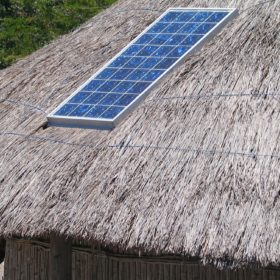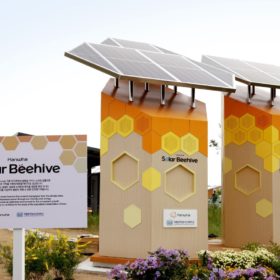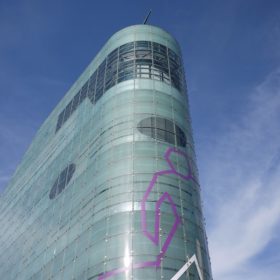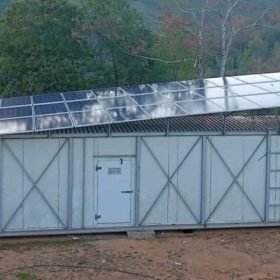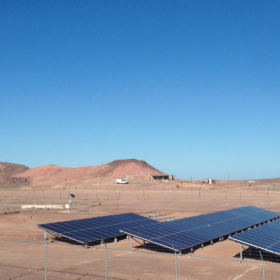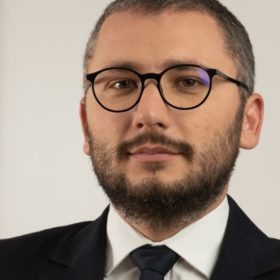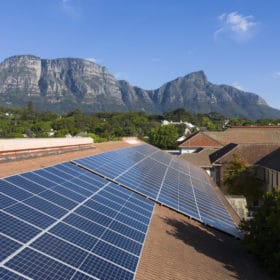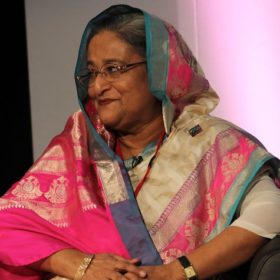Irena gives latest update on stark chances of electricity access for all by 2030
The International Renewable Energy Agency’s latest annual report on the progress towards UN sustainable development goal seven estimates 670 million people will still lack electricity in 2030, and more than 2 billion will be reliant on unhealthy, polluting cooking methods.
Solar beehive in South Korea
Hanwha Group has marked World Bee Day by unveiling the country’s first solar beehive. The PV modules on the beehive generate electricity to automatically monitor and control internal conditions.
Solar and heat pumps drive UK’s public sector net-zero plans
Solar panels accompany heat pumps on a significant number of the projects being funded by the UK government to reduce carbon emissions from public buildings – but not in Scotland.
Multi-chamber solar cold storage system
India-based Inficold has developed a multi-chamber, solar-powered cold storage solution that facilitates the storage of multiple perishable commodities in different temperature-controlled chambers, all under their respective ideal storage conditions.
IRENA fleshes out chilling effect of Covid on off-grid solar
The clean power numbers published annually by the International Renewable Energy Agency provide a snapshot of the global solar market and, this year, a lot of figures were unchanged from the previous dataset, especially in the off-grid segment.
Power-to-gas-to-power designs to incorporate hydrogen in solar-wind microgrids
Researchers in Mexico have looked at integrating hydrogen-based power-to-gas-to-power into an existing rural microgrid. They said this solution could become competitive if electrolyzer, fuel cell and hydrogen tank costs are halved, or if diesel prices keep rising.
World will need 5.2TW of solar this decade to avoid climate breakdown
The International Renewable Energy Agency’s latest global outlook has spelled out just how ‘woefully’ far the world is from capping temperature rises at 1.5C, and lamented: ‘The stimulus and recovery efforts associated with the pandemic have also proved a missed opportunity.’
Romania invests in PV cell and panel supply chains
A lack of trained personnel, slow overhaul of PV rules, and a weak electricity grid could slow the emergence of solar as a solution to diminish Romanian dependence on Russian gas. The next two winters will be critical.
World Bank notes potential for 210,000 mini-grids this decade
The international development entity has already invested $1 billion in local, off-grid electricity networks over the last decade – and attracted a further $1.1 billion in matched funding – and has predicted mini-grids could supply electricity to 490 million people by 2030.
Solar helps Bangladesh to universal access to electricity
A decade on from energy rationing, head of state Sheikh Hasina is poised to announce the achievement of an historic goal which has been made possible with the help of off-grid photovoltaics.
